If there’s one thing that the coronavirus pandemic has taught us, it’s that life is precious. And even generally healthy people can get very sick and experience a life-threatening emergency. If you are in a household with someone in a high-risk group, you’re even more aware of this. If they stop breathing or the heart stops beating, their loved ones’ fast action is often the difference between life and death.
So maybe you had considered taking a CPR course before the coronavirus pandemic and just never found the time. Now, you find yourself in a situation where you or a family member may need it, but taking an in-person CPR class doesn’t sound very smart right now.
Is there a safer way to learn everything you need to know to potentially save a life during an out-of-hospital COVID emergency while awaiting emergency responders? Yes. And it’s a great time to get CPR Training with Coronavirus specific safety guidelines.
Has Coronavirus Made Learning CPR More Important?
Many would say emphatically, “Yes!”.
Every year nearly 400,000 people experience cardiac arrest outside of a hospital setting. For most, it comes completely without warning. In around 39% of cases, someone who is not medically-trained knows CPR and is about to start life-saving treatment. That’s great because seconds matter during an event, and medical help will take time to get there.
The above stats were all before COVID-19. The pandemic has changed everything for people around the world. While we don’t have the final number of cardiac arrests for 2020-2021 yet, we can expect them to be much higher for two reasons.
The first is that COVID-19 can cause cardiac arrest. And the second is because, during the pandemic, studies like those conducted by CDC.gov have found that many people are avoiding the emergency room when they have non-COVID medical emergencies. After all, they fear contracting novel coronavirus while there.
Common sense tells us that if people aren’t going to the emergency room when they have heart pain, arm weakness, or other signs of an impending heart attack, stroke, or aneurysm, they’re much more likely to have that event outside the hospital.
COVID-19 Complications Increase Need for People with CPR Training
Some of the top complications for COVID-19 include:
- Respiratory failure
- Pneumonia
- Cardiac failure
- Acute Respiratory Distress Syndrome (ARDS)
- Septic shock
- Other organ failures
Around 20% of Covid-19 sufferers will need to be hospitalized with severe trouble breathing. As we’ve heard from many, the symptoms often come on quickly. They go from feeling a little under the weather, thinking they just have a little cold, to seriously ill sometimes within a day or two.
If your loved one suddenly experiences these kinds of emergencies, of course, someone should be calling 911. But according to Reuters.com the average ambulance takes eight minutes and may take up to 30 minutes in traffic or more rural areas.
While you’re waiting for professionals to arrive, knowing how to keep airways as open as possible and restart a heart could be the determining factor in your loved one’s survival.
Yes, CPR is that important. According to the Sudden Cardiac Arrest Foundation, having someone who knows CPR around when you have a cardiac event can increase your chances of survival as much as 6 fold.
What Is the Safest Way to Take CPR During Coronavirus Pandemic?
Mask-wearing has certainly gone up over the past several months around the US and the world.
According to the most recent studies, mask-wearing can cut risk of contracting the disease for both the wearer and those around them. But there is still some risk when you’re in a room with other people as you would be in an in-person CPR class.
That is especially a concern if you have vulnerable people at home. You want no exposure unless it’s absolutely necessary.
So the safest way to get CPR training during Coronavirus pandemic is online. Yes, isn’t technology great? You can now learn CPR 100% online with reliable internet and an internet-capable device.
You can even learn CPR on your phone.
Can You Get Industry-approved CPR Training Online for FREE?
Absolutely! For example, you can find a free 100% online CPR, AED, and First Aid Training program that follows industry-leading ILCOR standards, is compliant with Joint Commission’s (JCAHO) stringent quality standards and is accredited and A+ rated by the Better Business Bureau (BBB).
You’re learning the same life-saving techniques taught in leading in-person CPR training courses. And after taking these online courses, you can feel confident performing CPR and First Aid on loved ones, co-workers, friends, and, if needed, strangers.
Can You Get the Same Quality CPR Training Online Vs. In-person Classes?
 So you may be wondering: can I really get the same high-quality training online as I could with an in-person instructor?
So you may be wondering: can I really get the same high-quality training online as I could with an in-person instructor?
Online schools, universities, courses, and certification programs have long fought this battle of public perception. People still have this idea that you need to sit in a classroom to learn something. Why? We do everything else online–shop, order food, socialize, manage our finances, entertain ourselves, hold work meetings.
As many of us have realized during the pandemic, you can also get a quality education online. In some cases, it’s even better because online CPR courses are completely personalized to each student.
You can go back, rewatch, reread, and retest as many times as you need to make sure you’ve fully learned all of the information. Everyone learns at their own pace, and online courses understand that.
How Is CPR Training Coronanvirus Different?
Obviously, COVID-19 safety is incredibly important. Even if you’re trying to save a loved one’s life, you don’t want to increase your risk that you’ll get COVID-19. So CPR training Coronavirus specific courses do include extra steps you can take to reduce your risk of infection.
These include, among other precautions, wearing personal protective equipment (PPE) like gloves and a mask. Those are now available for most people.
Ideally, you should get a CPR pocket mask, which allows you to breathe out if you need to give breaths, but reduces the number of possibly contagious respiratory particles that come back to you from the “victim”.
Viral Exposure Level Matters
When it comes to staying healthy, the amount of virus you are exposed to appears to be a factor. And a study published in The Lancet, also found that viral load does seem to impact how sick a person will become if they contract the novel coronavirus.
So anything that decreases the number of droplets you’re exposed to can reduce your risk. In a CPR course with Coronavirus specific materials, you learn what kind of safety gear you need to keep on hand and properly use it.
COVID-specific guidelines cover these topics.
Can You Get CPR Plus First Aid at the Same Time?
Cardiopulmonary Resuscitation (CPR) is specifically intended to help you save a life during a cardiac emergency. However, often during a cardiac event, a person falls or is otherwise injured. Or a trauma or exposure may have caused the heart to stop.
So it’s imperative that those learning CPR also learn how to do First Aid to manage things like a possible concussion, broken neck, active bleeding, food allergy, etc., while awaiting medical help.
You can take CPR plus First Aid online in one comprehensive course, so you’re ready to make decisions in a variety of life-threatening emergencies. You can feel confident that you can stay calm and save a life.
Who Should Take CPR Training for Coronavirus?
In a perfect world, every adult and older teen would learn CPR. It makes that big of a difference when a non-medical person knows CPR. But there are definitely some people who should complete online CPR training for Coronavirus.
- People with a vulnerable person at home
- Teachers/ Instructors
- Daycare teachers and staff
- Human resources personnel
- Correctional officers and personnel
- High school and college students
- Police officers
- Nannies and babysitters
- Nurses, EMT, Paramedics, and other medical workers
- Bouncers and Security Guards
- Grocery store clerks and management
- Construction workers
- Truck drivers
That’s just to name a few.
Should Multiple People in a Household Learn CPR?
CPR can be performed by one or two people–ideally by two. For example, one person can call for help while the other starts CPR. One can focus on giving breaths while the other does chest compressions. One can put pressure on a bleeding wound while the other manages the CPR. It’s also a good idea if multiple people besides you know CPR because what if you’re the one who needs it?
There are endless scenarios where two heads are better than one. So it is certainly a good idea to encourage more than one person in a home or place of employment to learn CPR.
CPR Certification Discounts May Apply
If you have five or more friends, family, or co-workers who want to get CPR certified together, you may qualify for a team discount. Daycare workers, office friends, retail employees, family members–any group of 5 or more may qualify.
What Do You Learn in a CPR, AED, and First Aid Training?
In a CPR, AED, and First Aid course, you learn how to do the following while awaiting emergency medical support:
- Use an automated external defibrillator (AED) to shock a heart back into a rhythm
- Deal with an environmental injury like a bee sting allergic reaction or inhalation of dangerous chemicals
- Manage an opioid overdose
- Help a person who is choking (adult, child, infant)
- Identify possible medical problems
- Clear airways and keep them clear
- Do CPR on an Adult, Child, Infant
- Manage a variety of first aid situations
- Properly wash your hands, put on PPE, and safely remove PPE after use
- Learn hundreds of practical, life saving and quality of life saving tips you’ll probably use every day, not just for CPR or First Aid
What Are the Benefits of Getting Your CPR Certification?
Let’s make it official! After you complete a free CPR course, why not get your certification and make it official? There are so many reasons the pandemic is a great time to get your CPR certification or recertification.
- Get Continuing Medical Education Credits (CME), which are needed for some professional licenses
- Give employers just one more reason to hire you for any position. Most employers today recognize the importance of having several people on-staff who know CPR.
- Possibly make more money. If CPR is not a requirement for your job, some employers may give you a raise if you get CPR certified or pay you more during hiring.
- Feel more confident. There’s just something about having an important certification like this that makes you more confident in just about anything you do.
- Make it official. When you get CPR certified, you get a digital/printable CPR provider card to carry in your wallet, showing that you are certified.
How to Get Started with your Free Online CPR Course
It’s easy! You just begin watching a CPR course video. You’ll start with First Aid basics.
Each video is short and to the point, but provides you with the information to safely perform CPR on anyone, including someone who may be infected with coronavirus.
Review the materials in the video by reading the helpful study guide for each video. This ensures you’re getting all of the important concepts and feel confident in what you’re learning. Helpful pictures, charts, and diagrams guide your journey.
If you choose to take the 100% online CPR test for certification, you can review each study guide after you’ve completed all of the videos to refresh your memory. And a CPR practice test is available if you’d like to be sure you’re ready before proceeding to the test.
You’re encouraged to complete the test without reviewing your notes as you go. However, you can retake it as many times as you need for free until you pass. You don’t pay anything unless you would like to get an official CPR, AED, and First Aid Certification.
Do you know CPR? What ideas on CPR did you learn? Share with us.







This website has given me useful information about infant CPR .